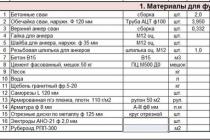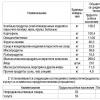An accountable person in accounting is an employee of an organization to whom funds are issued to pay for goods, works, services related to the economic activities of the company. As a result of spending Money such person submits to the accounting department with documents confirming the legitimacy of the expenses incurred.
The procedure for issuing money to the account
Sample order for reporting

Accounting for the issuance of money under the report
Accounting for money issued to accountable persons is kept on account 71 of the Chart of Accounts accounting. It is advisable to conduct analytical accounting for this account in the context of each accountant.
Cash can be given to an employee in cash through the cash desk of the organization, or transferred to a current account or bank card employee. The procedure for issuing both cash and non-cash way does not contradict the law, which was confirmed by the Ministry of Finance of the Russian Federation in Letters No.
The issuance of money to the account is reflected in the debit of account 71.
Accounting for settlements with accountable persons 2019
The employee is obliged, no later than three days after the expiration of the period for issuing money for the report, to submit an advance report to the accounting department. Accounting for settlements with accountable persons to reflect expenses, according to the advance report, is reflected in the credit of account 71.
Accounting for the return of unused imprest amounts
If the employee has not fully spent the received account, it must be returned. The employee returns the money to the cashier or to the current account, or, with his consent, the debt can be withheld from the salary within a month. If an employee refuses to return an unspent account, the organization may go to court.
The concept of an accountable person
Definition 1
Accountable person is a full-time employee of the company who received advance cash from the cash desk of the enterprise. Usually, cash funds are issued for travel expenses, for payment of business expenses, for the purchase of materials and other needs.
Cash funds are issued to the account on account cash warrants, and they can be spent exclusively for their intended purpose. Accountable funds are not included in income individuals- employees of the enterprise. The expenses of the accountable person, which were made in foreign currency, are subject to conversion into rubles at the exchange rate Central Bank RF, fixed on the date of approval of the advance report.
Internal organizational documents used in settlements with accountable persons include:
- lists of accountable persons approved by the company's management,
- representation expenses,
- orders for the approval of estimates,
- expense reports,
- reporting logs.
In addition, when sending employees on business trips, appropriate orders must be issued. Cash transactions in settlements with accountable persons are drawn up standard forms primary documents. The issuance of cash from the cash desk is carried out according to the expenditure cash warrants.
The issuance of cash related to business trips is carried out within the limits of the amounts due to the seconded employees for these purposes. Documents for the issuance of money must be signed by the head, chief accountant of the organization or other authorized employees. The cashier must require the presentation of a passport or other document proving the identity of the recipient when issuing money on an expenditure cash warrant.
Accountable persons must report for the funds received by compiling an advance report and attaching supporting documents for the purchased goods to it. Supporting documents in this case include:
- sales receipts,
- cashier's checks,
- travel tickets.
If the purchased goods are not credited to the warehouse of the organization, then the accountable amount must be included in the total annual income of the accountable employee. The procedure for issuing accountable amounts and reporting on them is determined by the order of the head of the company.
Employees who received cash under the report must, no later than three working days after the expiration of the period for which the money was issued, submit a report on the spent funds to the accounting department of the organization and make the final settlement. The advance report form is unified and is represented by the form AO-1 “Advance report”. The subsequent issuance of money under the report can be made only with the full report of a particular accountable person on advances issued earlier. The report is checked by an accountant.
The advance report verified by the accountant must be approved by the head and then accepted for accounting. The rest of the unused funds shall be transferred to the cash desk of the enterprise according to the incoming cash order. The overspending on the advance report is issued on the accountable cash warrant to the accountable person. Based on the approved advance report, the accountant writes off the accountable sums of money in a certain order.
Intraorganizational control over settlements with accountable persons
Intraorganizational control over settlements with accountable persons includes:
- an approved list of employees eligible to receive accountable funds,
- the approved procedure for submitting applications for the issuance of funds, indicating the purpose of such issuance,
- observance by the employees of the organization of the established deadlines for the report on the amounts issued and the deadlines for the return of the balance of funds,
- no arrears on accountable funds,
- compliance with the ban on the issuance of funds to employees who have not reported on previously received advances,
- keeping analytical accounting travel and hospitality expenses,
- preparation of necessary supporting documents for advance reports,
- endorsement of advance reports.
A business trip is a trip of an employee of the organization by order of the head to perform official assignments outside the place of permanent work. The sending by an enterprise of a person with whom it does not have an employment relationship cannot be considered a business trip.
Costs are business trip expenses related to production management. These costs form the cost of ordinary species activities.
When an employer pays an employee travel expenses, taxable income does not include:
- per diem, paid within the norms,
- incurred and documented travel expenses to and from the destination,
- airport taxes,
- travel expenses to the places of departure, destination or transfers,
- commission fees,
- baggage allowance,
- housing costs,
- communication service charges,
- expenses for obtaining and registering an official foreign passport, and obtaining visas,
- expenses related to currency exchange.
If the seconded employee (taxpayer) has not submitted documents confirming the payment of expenses for renting a dwelling, then the amounts of such payment within the limits established by law are exempt from taxation. The maximum amounts are: up to 700 rubles per day for a business trip in Russia and up to 2,500 rubles per day for a business trip abroad.
Remark 1
The amount of travel expenses to the place of business trip and back are included in the company's expenses without VAT. The tax deduction is made on the basis of the invoice issued by the seller. Tax amounts are reimbursed within the limits established by law. A travel ticket issued according to the established model, in which the amount of VAT is highlighted in a separate line, makes it possible to deduct the amount of VAT without an invoice. This also applies to e-tickets. Please note that a deduction is possible only if the tax is separated from the total ticket price and presented in figures.
Another type of settlement with accountable persons is settlement of hospitality expenses. Representation expenses are expenses for the official reception and maintenance of representatives of other companies who participate in negotiations, as well as participants in a meeting of the board of directors. Expenses for entertainment, recreation, prevention and treatment of diseases do not apply to entertainment expenses. It should be noted that hospitality expenses are included in other expenses in the amount of not more than four percent of the company's labor costs for the reporting period.
To registers synthetic accounting, which reflect transactions on settlements with accountable persons, include:
- main book,
- cash flow statement (form No. 4),
- balance sheet line “Other receivables for which payments are expected within 12 months”,
- journal-order number 7,
- other accounting registers on account 71.
Analytical accounting of settlements with accountable persons is carried out for each amount that is issued for the report. To summarize data on settlements with employees in terms of amounts issued against the expense report, enterprises use account 71 “Settlements with accountable persons”. For the amount of funds issued under the report, 71 accounts “Settlements with accountable persons” are debited with cash accounts. For the amount of funds spent by accountable persons, 71 accounts are credited in correspondence with accounts for accounting for expenses and acquired values, or other accounts, the choice of which is determined by the nature of the expenses incurred.
Accountable amounts that employees did not return in set time, are taken into account on the credit of 71 accounts and the debit of 94 accounts “Shortages and losses from damage to valuables”. Write-off of these amounts from account 94 “Shortages and losses from damage to valuables” is made to debit 70 of account “Settlements with personnel for wages”, provided that they can be deducted from wages employee, or to debit 73 of the account “Settlements with personnel for other operations”, provided that there is no possibility of deduction from wages.
Accounting Theory: Lecture Notes Daraeva Yuliya Anatolyevna
1. Accounting for settlements with accountable persons
Accountable persons - employees of the enterprise receiving cash advances for the implementation of business expenses and for expenses on the occasion of business trips. Order of conduct cash transactions determines the procedure for issuing money under the report. Issuance is made in the presence of a cash desk and without a cash desk, a check is issued from the cash desk of the bank.
Accountable amounts for household expenses are issued in the amount of a 2-day need for no more than 3 days. If outside the location of the enterprise - in the amount of a 10-day requirement up to 15 days. For business trips: for the cost of travel there and back, per diems and expenses for renting a dwelling.
If a travel worker is temporarily unable to work, he is compensated for the rental of living quarters, except for those cases when the worker was in a hospital, and daily allowances are paid for the entire time until he could continue the assignment and return, but not more than 2 months.
Temporary disability and inability to return must be documented. The period of the business trip does not include days of temporary disability. The employee is reimbursed for services pre-purchase tickets, bedding, insurance fee, accommodation reservation costs, public transport (except taxis) if they are outside the destination only on the basis of documents.
The day of departure is the day of departure vehicle from the place of permanent work, and the day of arrival is the day of arrival of the vehicle to the place of work. When departing to a place before 24:00, the current day is used; after 0:00, the next day.
If the destination is outside the city limits, the time of arrival to the station is taken into account. The mode of work and rest is determined by the enterprise that sent him. Instead of days of rest not used during a business trip, other days are not provided. If an employee goes on a business trip on the order of the administration on a day off, then he in due course another rest day is provided.
Received advances are allowed to be used by accountable persons only for the purposes for which they were issued. Within 30 days after returning from a business trip, accountable persons are required to submit an advance report on the amounts spent.
Settlements with accountable persons are recorded on the active-passive account 71 "Settlements with accountable persons". The issuance of cash is issued to the accountable person on the basis of a memo, which must indicate: the purpose of the expenditure, the timing and the amount required for this. The memorandum must be signed by the head of the enterprise, and only after that the accountant can issue an account cash warrant for this amount, and the cashier - to issue an accountable amount.
The accountable person must submit to the accounting department of the enterprise an advance report with supporting documents (sales receipts) on the fact of acquiring items for administrative and economic needs within the prescribed period. The accountable person returns the balance of the unused amount to the cash desk of the enterprise according to the cash receipt order.
The head of the enterprise can send an accountable person to business trip(for example, on a trip to certain period to another region or city to fulfill any instructions of the head).
When sending an accountable person on a business trip within Russian Federation in the accounting department of the enterprise, a travel certificate is issued, which must contain the following necessary details:
1) last name, first name, patronymic of the accountable person;
2) the destination of the business trip;
3) the name of the enterprise where the accountable person is sent;
4) the purpose of the business trip;
5) the term of the business trip.
The travel certificate must be signed by the head of the enterprise. The current legislation provides for the following guarantees and compensation payments on business trips:
1) preservation of the place of work (position) and average earnings for the seconded employee during the entire time of the business trip;
2) payment of per diems for the time spent on a business trip;
3) payment of travel expenses to the destination and back;
4) payment of expenses for renting a dwelling. In accounting, transactions with accountable persons are reflected in the following entries:
1) an advance payment for travel expenses has been issued:
Debit of account 71 “Settlements with accountable persons”, Credit of account 50 “Cashier”;
2) reflects the costs of renting a dwelling (excluding VAT):
Debit of account 44 “Expenses for sale”, Credit of account 71 “Settlements with accountable persons”;
3) the amount of VAT paid for renting a dwelling is taken into account:
Debit account 19 "Value added tax on acquired values",
Credit of account 71 "Settlements with accountable persons";
4) return of the unused amount to the cash desk from the accountable person:
Debit account 50 "Cashier",
Documents confirming the expenditure of accountable amounts are attached to the advance report, a completed travel certificate is attached to business trips, etc.
In the accounting department, advance reports are checked and the amounts subject to approval by the management of the enterprise are determined.
For the amounts issued under the report, an entry is made:
The following entries are made for the amounts spent, accepted and approved according to expense reports:
Debit of accounts 25 "General production expenses", 26 " General running costs”, 10 “Materials”,
Credit of account 71 "Settlements with accountable persons".
Unspent amounts are returned to the cash desk of the enterprise:
Debit of account 50 "Cashier", Credit of account 71 "Settlements with accountable persons".
At business trips abroad issuance of an advance in foreign currency is reflected in the accounting as follows:
Debit of account 71 “Settlements with accountable persons”, Credit of account 50 “Cashier”.
Accountable amounts not returned by employees on time are written off in the following way: Debit 94 “Shortages and losses from damage to valuables”, Credit 71 “Settlements with accountable persons”.
If these amounts can be deducted from the salary, then an entry is made:
Debit 70 “Settlements with personnel for wages”, Credit 94 “Shortages and losses from damage to valuables”.
If they cannot be held:
Debit 73 "Settlements with personnel for other operations",
Loan 94 "Shortages and losses from damage to valuables."
Analytical accounting is maintained for each advance issue. Issuance of new advances can be only with a full report on the previous advance. Transferring the advance to another person is not allowed.
From the book Accounting Theory: Lecture Notes author Daraeva Yulia Anatolievna1. Accounting for settlements with accountable persons Accountable persons are employees of the enterprise who receive cash advances for business expenses and travel expenses. The procedure for conducting cash transactions determines the procedure for issuing money for a report.
From the book Practical Audit authorChapter 8 Audit of settlements with suppliers, buyers, debtors and creditors, accountable persons After studying this chapter, you will learn: - the goals and objectives of the audit of settlements with suppliers, buyers, debtors and creditors, accountable persons; - a list of basic documents,
author Melnikov IlyaSETTLEMENTS WITH ACCOUNTABLE PERSONS Enterprises issue money on account, for example, for the purchase of some goods for the enterprise for cash. Accountable persons are employees of the enterprise who have received cash amounts for the upcoming operating,
From the book Accounting to agriculture author Bychkova Svetlana Mikhailovna9.7. Accounting for settlements with accountable persons and with personnel on other transactions One of the types of internal settlements in farms is settlements on accountable amounts. Agricultural enterprises can issue money on account for operating, economic and
From the book Accounting Theory author Daraeva Yulia Anatolievna12. Accounting for settlements with accountable persons Accountable persons are employees of the enterprise who receive cash advances for business expenses and travel expenses. The procedure for conducting cash transactions determines the procedure for issuing money for a report.
the author Zakharyin V R1. General rules settlements with accountable persons 1.1. Legislative and regulation settlements with accountable persons 1.1.1. General Provisions entrepreneurial activity organizations often need to make cash payments
From the book Settlements with Accountable Persons: Accounting and Taxation. the author Zakharyin V R4. The main accounting entries for accounting for settlements with accountable
From the book The ABC of Accounting author Vinogradov Alexey Yurievich5.3. Accounting for transactions with accountable persons To account for the issuance of cash to accountable persons from the cash desk of the enterprise, account 71 “Settlements with accountable persons” is used. Accountable persons must submit a report on the amounts spent to the accounting department of the enterprise
From the book Accounting Restoration, or How to “Reanimate” a Firm author4.6. The procedure for identifying and correcting errors identified when recording transactions for accounting for settlements with accountable persons Violations of advance discipline most often manifest themselves in the absence of an order to appoint accountable persons and set deadlines for submitting reports
From the book Accounting author Bychkova Svetlana Mikhailovna9.8. Audit of settlements with suppliers, buyers, debtors and creditors, accountable persons The purpose of the audit of settlements with suppliers, buyers, debtors and creditors, accountable persons is to express an opinion on the reliability of accounting and reporting
From the book Financial Accounting author Kartashova Irina3.2. Accounting for settlements with accountable persons 3.2.1. Who can act as an accountable person? Employees of an organization who have received cash in advance for upcoming administrative and operational and operational
From the book Accounting author Sherstneva Galina Sergeevna21. Settlements with accountable persons According to the Instructions for the application of the Chart of Accounts, account 71 “Settlements with accountable persons” is intended to summarize information on settlements with employees in respect of the amounts issued to them against the report on administrative, economic and other expenses.
From book Common Mistakes in accounting and reporting author Utkina Svetlana AnatolievnaChapter 8. Typical errors in accounting for payroll and other transactions with personnel, in accounting for accounts with accountable persons
From the book Accounting from scratch author Kryukov Andrey VitalievichSettlements with accountable persons
From the book Cash cash settlements: taking into account recent changes in legislation author Korniychuk GalinaSettlements with accountable persons In accordance with clause 11 of the Procedure for Conducting Cash Operations in the Russian Federation, enterprises have the right to issue cash from the cash desk on account of: - for business and operating expenses; - for expenses of expeditions, geological exploration parties and
From the book Accounting in Medicine author Firstova Svetlana Yurievna5.3. Accounting for settlements with accountable persons (Level 2) Accountable persons are employees of an institution who have received cash amounts for reporting on upcoming administrative, business and travel expenses. Advances for reporting are issued only to persons working in
In accounting, to reflect settlements with employees of the organization on accountable amounts, a special account 71 “Settlements with accountable persons” is intended in accordance with the Chart of Accounts approved by Order of the Ministry of Finance of the Russian Federation dated October 31, 2000. No. 94n. This account collects all information on settlements with employees on the amounts issued to them under the report for business, operating, hospitality and travel expenses.
Account 71 - active-passive. The debit of the account reflects the amounts of the reimbursed overspending and those newly issued under the report on the basis of expenditure cash warrants, the credit of the account shows the amounts used according to advance reports and deposited by cash receipt orders (unused).
Account 71 balance - debit, shows availability accounts receivable accountable persons, i.e. the amount of money that is accountable to the employees of the organization. If account 71 occurs credit balance, then it means accounts payable accountable persons, i.e. the amount of unreimbursed overspending.
The issuance of cash advances to accountable persons is reflected in the debit of account 71 “Settlements with accountable persons” and the credit of account 50 “Cashier”. Expenses paid from accountable amounts are debited from the credit of account 71 “Settlements with accountable persons” to the debit of accounts 10 “Materials”, 26 “General expenses”, 20 “Main production”, etc., depending on the nature of the expenses.
The balances of unused amounts returned to the cash desk are written off from accountable persons to the debit of account 50 "Cashier". Payment for goods from a card account is reflected in the debit of account 71 “Settlements with accountable persons” and the credit of account 55 “Special card account”.
Scheme of the main accounting entries on accounting for transactions with funds issued under the report is given in table 1.
Table 1 - Correspondence of accounts for accounting of settlements with accountable persons
|
Accountable amounts issued from the cash desk of the enterprise |
|||
|
The accountable person received cash amounts by check from a current account, from a foreign currency account, from special accounts in banks |
|||
|
A check was issued to the accountable person from checkbook, letter of credit |
|||
|
Purchased equipment purchased with cash |
|||
|
Materials purchased for cash |
|||
|
Magnified actual cost materials transportation and procurement and other expenses paid in cash |
|||
|
Attributed to the cost of products (works, services) of the main or auxiliary production cost of work performed third parties paid in cash |
|||
|
Travel expenses of general production personnel are taken into account |
|||
|
The payment for works and services to ensure management activities is reflected, travel expenses of employees of the organization's management are taken into account |
|||
|
Paid in cash for the expenses of housing and communal services, preschool institutions, household institutions, catering units |
|||
|
Travel expenses of employees are taken into account trade, catering |
|||
|
The balance of the unused accountable amount was handed over to the cashier |
|||
|
Reflected the issuance of wages in structural divisions organizations (accountable persons - distributors) |
|||
|
Paid in cash for the maintenance of property leased; costs associated with the consideration of cases in courts; expenses incurred with payment for the services of credit institutions |
|||
|
Reflected the amount of the unreturned advance payment |
The composition of hospitality expenses and the procedure for their recognition for tax purposes differs from the composition of hospitality expenses and the procedure for their recognition in accounting.
In accounting, hospitality expenses as business expenses form expenses for the ordinary activities of the enterprise (clause 5-8 PBU 10/99 "Expenses of the organization", approved by order of the Ministry of Finance of the Russian Federation dated May 6, 1999 No. 33).
In this case, hospitality expenses are current and are accounted for on accounts 26 “General business expenses” or 44 “Sales expenses” in correspondence with account 71 “Settlements with accountable persons.
In some cases, entertainment expenses may be charged to capital investments if they are associated with capital construction, modernization, reconstruction of fixed assets. In this case, they will be reflected in the debit of account 08 “Investments in fixed assets» and be included in the cost of fixed assets.
If inventories (products) are purchased for a representative event, then first they should be reflected on account 10 “Materials” or account 15 “Procurement or acquisition material assets» depending on the selected accounting policy.
In accounting, hospitality expenses are accepted in full and in reporting period in which originated, regardless of the time of actual payment. In tax accounting, hospitality expenses are related to other expenses associated with production and sales. These costs are included in indirect costs, which fully reduce income from production and sales of the current (reporting) period.
The procedure for recognizing hospitality expenses for tax purposes depends on how the organization recognizes income and expenses - on an accrual basis or on a cash basis.
With the accrual method, the date of recognition of hospitality expenses is the day of approval of the act on writing off hospitality expenses for the official reception of representatives. Under the cash method, income and expenses are taken into account for income tax purposes in the period in which they were actually paid.
Also, entertainment expenses may be included in other expenses if they are related to the sale of fixed assets, intangible assets or valuable papers. In this case, the amount of these expenses will be written off to the debit of account 91 “Other income and expenses”, subaccount 2 “Other expenses”.
Representation expenses for the purposes of taxation of profits are classified as normalized expenses. This means that when calculating income tax for the reporting period, the organization can take into account these expenses in an amount that does not exceed 4% of the company's labor costs for this period.
Since in tax accounting normalized expenses are not taken into account in full, in accounting costs are higher than in tax accounting. At the same time, expenses not taken into account in one reporting period may be recognized in another reporting period. The amount of excess entertainment expenses is a constant difference. The resulting constant difference can be accounted for as a separate subaccount to the cost accounting account, or reflected separately in analytical accounting registers.
Based constant difference the organization is required to form permanent tax liabilities. If a permanent difference occurs during the reporting year, then in subsequent periods the specified amount of expenses may meet the established limit. In this case, the accrued constant tax liability needs to be reduced or eliminated.
If the amount of representation expenses in accounting exceeds the limit established for tax purposes, the accountant must draw up accounting statement. In it, you need to calculate the amount of representation expenses, which can be taken into account when calculating income tax.
Usually, the cost of services paid by the organization when receiving representatives of other organizations includes value added tax. The amount of the "input" value added tax on hospitality expenses can be presented by the organization to tax deduction if the following conditions are met:
representation expenses are accepted for accounting;
there is an invoice for representation expenses, which indicates the amount of value added tax;
representation expenses are paid, and the amount of value added tax is allocated in payment document on a separate line;
hospitality expenses are related to activities that are subject to value added tax.
Value added tax on normalized expenses can only be reimbursed in the amount that corresponds to the amount of hospitality expenses that fit into the standard. That is, the part of the expenses that is taken into account when calculating income tax. Value added tax, which falls on excess expenses, can neither be presented for a tax deduction, nor taken into account as part of expenses when calculating income tax.
Since the amount of the "input" value added tax, which falls on excess costs, is included in the expenses in accounting, and is not taken into account for tax purposes, a permanent difference arises. Based on this difference, the accountant must form a permanent tax liability. Its amount is calculated by multiplying the amount of the permanent difference by the income tax rate.
In subsequent reporting periods, when calculating hospitality expenses on an accrual basis from the beginning of the year for tax purposes, the organization may meet the established standard. In this case, the entire amount of value added tax written off as expenses must be restored and presented for a tax deduction.
As far as alcoholic drinks are concerned, Tax law The Russian Federation does not specifically say that the cost of purchasing alcohol can be attributed to entertainment expenses. But at the same time, it does not prohibit doing this. Therefore, taxpayers can attribute the cost of purchasing alcohol to entertainment expenses. The main thing is to confirm them with documents and prove their economic feasibility. The number of alcoholic beverages purchased should contribute to the achievement of the purpose of the official event - to establish or maintain mutually beneficial cooperation.
The amount of alcohol consumed should be within reasonable drinking limits.
The organization can develop and approve the norms for the consumption of alcoholic beverages during business negotiations per person per day. And then consider the cost of alcohol as a separate cost item for a buffet or restaurant service for each official reception, depending on the number of participants in the official reception. Travel expenses of an employee are reflected in the amount of actually incurred and documented expenses on the credit of account 71 “Settlements with accountable persons” and on the debit of accounting accounts (depending on the nature and purpose of the trip). Travel expenses are recognized as costs associated with the management of production and form expenses for ordinary activities. Business trips, the purpose of which is to purchase equipment, intangible assets, materials, are also considered official, but their reflection in accounting has a number of features. The above travel expenses will be charged to the increase book value purchased equipment, intangible assets and materials. If a business trip is related to the purchase of materials, then the cost of this business trip will be charged to the cost of materials and included in the cost of production as materials are used for production purposes. For the purposes of calculating the tax base for income tax, an enterprise may include travel expenses incurred without any restrictions subject to their documentary confirmation and production orientation. Until January 1, 2016. the amount of daily allowance for the purpose of taxation of profits was limited by the standards that were established by Decree of the Government of the Russian Federation dated 08.02.2002 No. 93n “On the establishment of norms for the expenses of organizations for the payment of daily allowances or field allowances, within which, when determining the tax base for corporate income tax, such expenses are included to other costs associated with production and sale. In particular, for business trips on the territory of the Russian Federation, daily allowances in the amount not exceeding 100 rubles for each day of business trip could be included in expenses for the purpose of calculating income tax. From January 1, 2016 rationing of daily allowances has not been abolished. Organizations can reduce taxable income by the entire amount of per diem in the amount established by the internal local regulatory act (collective agreement, order, travel regulations, etc.).
From January 1, 2016 daily allowance standards have been established, which are applied for the purpose of calculating personal income tax:
for business trips in Russia - 700 rubles per day;
for foreign business trips- 2500 rubles per day. Accordingly, if per diems are paid to employees in larger size, then the excess amount should be subject to personal income tax.
In accounting, daily allowances are fully included in the expenses of the enterprise. In tax accounting, per diems are taken into account as part of other expenses only within the limits established in collective agreement or orders from the manager. If per diems are issued within the limits established by the order of the head, then their amount in tax accounting is included in other expenses. If per diems are issued in excess of the established norms, then the amount of the excess is not included in other expenses and it does not reduce taxable profit.
Travel expenses are taken into account for tax purposes in the amount of actual costs, confirmed primary documents. The organization can take into account in expenses that reduce taxable income, actually incurred travel expenses, confirmed by primary documents.
Recently, more and more widespread are e-tickets(tickets issued in paperless form). New form a ticket is of interest not only to the passenger, but also to each organization, since it is a document confirming the cost of travel to the place of a business trip and back. The purchase of such a ticket does not preclude the ability to include its cost in expenses that reduce tax base on income tax. In this case, supporting documents may be a printout of an electronic document on paper and a boarding pass.
Business travelers often bear the costs of paying for telephone conversations. If the seconded person can confirm the production orientation of the negotiations carried out, as well as document them, then the organization has the right to include the payment of these expenses in the tax base for calculating income tax.
Expenses for booking a dwelling are reimbursed to employees in the manner and in the amount determined by the collective agreement or local regulatory act. If the organization establishes a rule in the local act, according to which the fee for booking accommodation for a posted worker is reimbursed in full size, it has the right to consider these costs as part of income tax expenses.
The organization has the right to deduct the amount of value added tax on travel expenses, including travel expenses to and from the place of business trip. For travel expenses, value added tax is deductible in full on the basis of travel documents (tickets), in which the amount of tax is allocated as a separate line. In this case, an invoice is not required. In this case, the deduction is possible only if the employee returns from the business trip and submits an advance report with the form of the used ticket attached to it. If the amount of value added tax is not allocated in the ticket, then it is not determined by calculation and is not accepted for deduction. Wherein total cost the ticket is included in the costs when calculating income tax.
In a collective agreement or local normative act organizations should ensure that certain cases the posted worker is reimbursed for the cost of paying a taxi. The actual payment for taxi services must be confirmed by a cash register receipt and attached to the advance report.
When a business trip employee travels to the place of business trip and back to the place of permanent work in his own car, the employee can confirm his travel expenses with the help of receipts of the established form, indicating the purchase of gasoline at a gas station, payment for parking services.
Expenses for accommodation in a hotel during a business trip are accepted for profit tax purposes in the amount of actual costs based on receipts or invoices for hotel accommodation and checks of cash registers (when paying for the hotel in cash). If the hotel does not have cash register, then the employee must be given a form strict accountability. Until December 1, 2016 for hotels, this was a hotel invoice in the form No. 3-G, approved by order of the Ministry of Finance dated 13.12.1993. No. 121 "On approval of forms of documents of strict accountability". From December 1, 2016 it can be a form of any form containing all the necessary details. It fixes the payment for the entire period of residence. Per Additional services provided by the hotel, a receipt is issued in the form of No. 12-G., which is also a form of strict accountability. cash receipt is optional in this case.
If the value added tax is highlighted in a separate line in the strict reporting form, then this amount can be declared deductible without an invoice. If the hotel invoice brought by the employee does not meet the requirements for strict reporting forms, then an invoice is required to deduct value added tax. The invoice must be issued by the hotel in the name of the organization that sent the worker. If the invoice is issued in the name of the posted worker, then no deduction for such an invoice is presented.
The deduction of value added tax on the cost of renting a dwelling is possible only if we are talking on residence in the territory of the Russian Federation. For living expenses in the territory of foreign states (including in the territory of the member states of the Commonwealth of Independent States), the amount of value added tax is not deductible, even if it is highlighted in the documents as a separate line.
17. Accounting for settlements with accountable persons.
Accountable persons - employees of the enterprise who receive cash advances for the implementation of business expenses and for expenses on business trips. The procedure for conducting cash transactions determines the procedure for issuing money for a report. Issuance is made in the presence of a cash desk and without a cash desk, a check is issued from the cash desk of the bank.
Accountable amounts for household expenses are issued in the amount of a 2-day need for no more than 3 days. If outside the location of the enterprise - in the amount of a 10-day requirement up to 15 days. For business trips: for the cost of travel there and back, per diems and expenses for renting a dwelling.
If a travel worker is temporarily unable to work, he is compensated for the rental of living quarters, except for those cases when the worker was in a hospital, and daily allowances are paid for the entire time until he could continue the assignment and return, but not more than 2 months.
Temporary disability and inability to return must be documented. The period of the business trip does not include days of temporary disability. The employee is reimbursed for the services of pre-purchasing tickets, the use of a bed, the insurance fee, the costs of booking accommodation, the use of public transport (except taxis), if they are outside the destination only on the basis of documents.
The day of departure is the day of departure of the vehicle from the place of permanent work, and the day of arrival is the day the vehicle arrives at the place of work. When departing to a place before 24:00, the current day is used; after 0:00, the next day.
If the destination is outside the city limits, the time of arrival to the station is taken into account. The mode of work and rest is determined by the enterprise that sent him. Instead of days of rest not used during a business trip, other days are not provided. If an employee goes on a business trip on the order of the administration on a day off, then he is given another day of rest in accordance with the established procedure.
Received advances are allowed to be used by accountable persons only for the purposes for which they were issued. Within 30 days after returning from a business trip, accountable persons are required to submit an advance report on the amounts spent.
Settlements with accountable persons are recorded on the active-passive account 71 "Settlements with accountable persons". The issuance of cash is issued to the accountable person on the basis of a memo, which must indicate: the purpose of the expenditure, the timing and the amount required for this. The memo must be signed by the head of the enterprise, and only after that the accountant can issue a cash order for this amount, and the cashier can issue the accountable amount.
The accountable person must submit to the accounting department of the enterprise an advance report with supporting documents (sales receipts) on the fact of acquiring items for administrative and economic needs within the prescribed period. The accountable person returns the balance of the unused amount to the cash desk of the enterprise according to the cash receipt order.
The head of the enterprise can send an accountable person on a business trip (for example, on a trip for a certain period to another region or city to fulfill any instructions of the head).
When sending an accountable person on a business trip within the Russian Federation, a business trip certificate is issued in the accounting department of the enterprise, which must contain the following necessary details:
1) last name, first name, patronymic of the accountable person;
2) the destination of the business trip;
3) the name of the enterprise where the accountable person is sent;
4) the purpose of the business trip;
5) the term of the business trip.
The travel certificate must be signed by the head of the enterprise. The current legislation provides for the following guarantees and compensation payments for business trips:
1) preservation of the place of work (position) and average earnings for the seconded employee during the entire time of the business trip;
2) payment of per diems for the time spent on a business trip;
3) payment of travel expenses to the destination and back;
4) payment of expenses for renting a dwelling. In accounting, transactions with accountable persons are reflected in the following entries:
1) an advance payment for travel expenses has been issued:
Debit of account 71 “Settlements with accountable persons”, Credit of account 50 “Cashier”;
2) reflects the costs of renting a dwelling (excluding VAT):
Debit of account 44 “Expenses for sale”, Credit of account 71 “Settlements with accountable persons”;
3) the amount of VAT paid for renting a dwelling is taken into account:
Debit account 19 "Value added tax on acquired values",
Credit of account 71 "Settlements with accountable persons";
4) return of the unused amount to the cash desk from the accountable person:
Debit account 50 "Cashier",
Documents confirming the expenditure of accountable amounts are attached to the advance report, a completed travel certificate is attached to business trips, etc.
In the accounting department, advance reports are checked and the amounts subject to approval by the management of the enterprise are determined.
For the amounts issued under the report, an entry is made:
The following entries are made for the amounts spent, accepted and approved according to expense reports:
Debit of accounts 25 "General production expenses", 26 "General expenses", 10 "Materials",
Credit of account 71 "Settlements with accountable persons".
Unspent amounts are returned to the cash desk of the enterprise:
Debit of account 50 "Cashier", Credit of account 71 "Settlements with accountable persons".
For business trips abroad, the issuance of an advance payment in foreign currency is reflected in the accounting as follows:
Debit of account 71 “Settlements with accountable persons”, Credit of account 50 “Cashier”.
Accountable amounts not returned by employees on time are debited as follows: Debit 94 “Deficiencies and losses from damage to valuables”, Credit 71 “Settlements with accountable persons”.
If these amounts can be deducted from the salary, then an entry is made:
Debit 70 “Settlements with personnel for wages”, Credit 94 “Shortages and losses from damage to valuables”.
If they cannot be held:
Debit 73 "Settlements with personnel for other operations",
Loan 94 "Shortages and losses from damage to valuables."
Analytical accounting is maintained for each advance issue. Issuance of new advances can be only with a full report on the previous advance. Transferring the advance to another person is not allowed.
| " |














